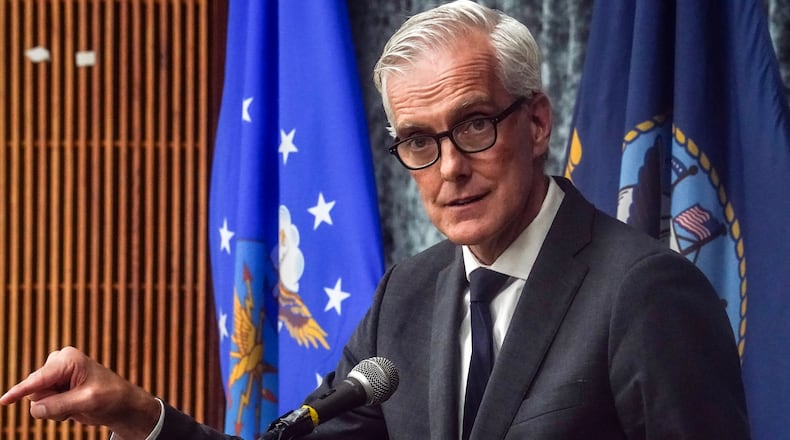The lack of required follow-up communications with the veteran likely contributed to a drug-abuse relapse and overdose death, the March 21 report concluded.
The cause of death of the unnamed patient was described as an “accidental inhalant overdose.” The type of inhalant was not identified in the report.
Though the automated system had updated the veteran’s medical record to show he missed the mental health care appointment, a request for callbacks for rescheduling was “queued incorrectly,” the report states.
The veteran’s overdose death occurred seven weeks after he missed the mental health care appointment in the spring of 2022, according to the findings.
“We have fixed the technical issue, and the electronic health record management system now provides appropriate follow-up reminders to VA staff at all sites,” said Terrence Hayes, the VA press secretary.
In addition, the VA is reviewing its procedures for scheduling mental health appointments, Hayes said, and will ensure future practices are the same across all VA health facilities.
Under current policy, VA health facilities must make three attempts at telephone callbacks on separate days with a patient to reschedule a missed appointment, the report states.
A psychologist and medical assistant had both left phone messages on the same day to check on the welfare of the veteran, according to the report.
But no attempts were made to reschedule the appointment because of an error in the automated system.
“The [inspector general] found that the patient’s missed appointment, although updated to no-show status, was not routed to a request queue and, as a result, schedulers were not prompted to conduct required rescheduling efforts,” the report states.
He subsequently missed a primary care appointment the same week.
The report concluded lack of contact with the veteran to reschedule might have contributed to his “disengagement from mental health treatment,” drug abuse and overdose death.
The patient, who had been enrolled in VA health care since 2018, was previously hospitalized for depression, had experienced homelessness and was considered at “high risk” for suicide in 2020, according to the findings.
The veteran was not “flagged” as a high risk for suicide in 2022, the report said.
“This was a veteran who served this country and deserved the best health care,” Shereef Elnahal, the VA undersecretary for health, said Tuesday at a news conference. “The Columbus VA Medical Center has done a deep dive and has made significant changes to the processes to prevent this from happening again.”
The VA — with one exception — has delayed further adoption of the new electronic health record system at other facilities because of performance problems at the VA health care networks where it was introduced in 2021.
Those sites are in Columbus, Ohio, Walla Walla and Spokane, Wash., and Roseburg and White City, Ore.
The VA said its contractor, Oracle Cerner, is focused on fixing problems at those sites.
The new system, for example, has not automatically send appointment reminders to patients, as the original system did. In some cases, data migration from the old to the new system was incomplete.
But the VA did move ahead with installing the modernized electronic health record management system at the Capt. James A. Lovell Federal Health Care Center in Chicago in collaboration with the Defense Department.
The facility provides care to veterans and active-duty service members at a 300-bed hospital and VA outpatient clinics in the greater Chicago area. It is the only health care facility serving the Defense Department and VA patients.
The installation got underway in early March.
As a joint facility, the Chicago medical center and its community clinics have used multiple electronic health record systems, which created bottlenecks and were inefficient, the VA said.
VA Secretary Denis McDonough said the VA is monitoring the software performance at the Chicago sites to help determine whether it is ready for further deployment.
“At Lovell, we will be watching closely and be transparent when problems arise,” he said, before adopting the software at each of the VA’s 172 medical centers and affiliated outpatient clinics.
McDonough declined to estimate when the software rollout will resume.
“We will stay in reset until we are sure we are making the system work,” he said.
About the Author
